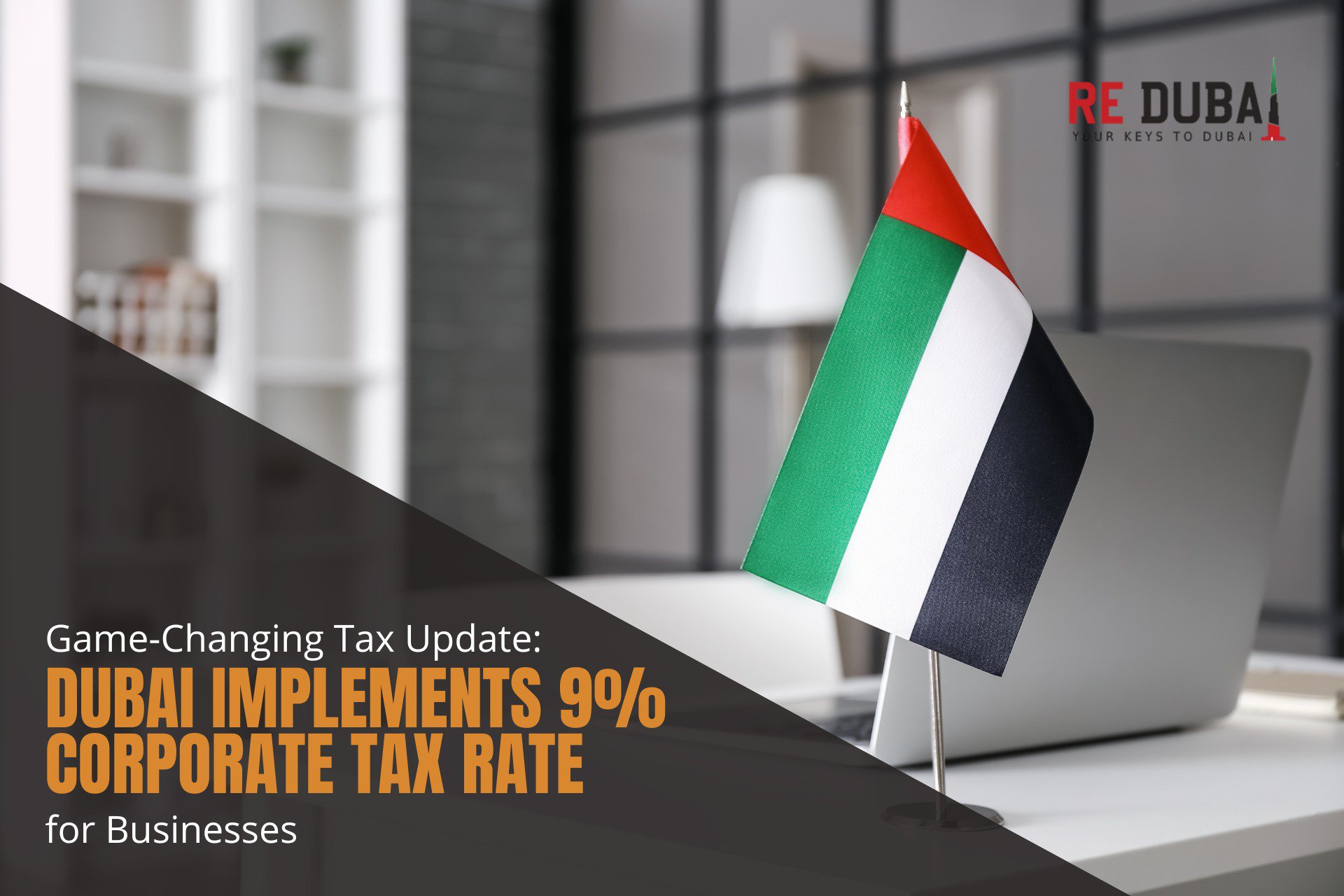Dubai, the bustling business hub of the United Arab Emirates, has recently enacted a game-changing tax update that is set to reshape the landscape for businesses operating in the region. In a significant departure from its previous tax regime, Dubai has introduced a new corporate tax rate of 9%, set to be implemented from the financial year starting on or after 1st June 2023. This landmark development marks a shift in the city's approach to taxation, bringing with it various implications for businesses. In this article, we will explore the background of corporate tax in Dubai, delve into the specifics of the tax update, analyze its implications on businesses and the broader economy, and address the exemptions and withholding tax introduced in the new corporate tax law.
Background on Corporate Tax in Dubai
The authorities already released the corporate tax law on 9th December 2020. The UAE corporate tax is made available through 'Federal Decree-Law no. 47 of 2022' on their official website. To download the UAE corporate tax law, you can visit the Ministry of Finance website.
In the past, Dubai was renowned for its business-friendly environment, attracting companies from all over the globe with its absence of corporate tax. This tax-free status played a vital role in fostering rapid economic growth and encouraging foreign investment. However, as the economic landscape evolved, so did Dubai's approach to taxation. The introduction of the 9% corporate tax rate comes as part of a broader diversification strategy to ensure sustainable economic growth, reduce dependency on oil revenue, and bolster public finances.
Details of the Corporate Tax Update
The implementation of the new corporate tax rate is effective from the financial year starting on or after 1st June 2023. Companies operating in Dubai will be subject to a flat 9% tax on their net profits, which will undoubtedly have far-reaching effects on their financial planning and operations. However, in order to extend support to small businesses and start-ups, there will be a special provision. Businesses with a net profit up to 375,000 AED will enjoy a '0%' corporate tax rate, providing them with significant relief from the tax burden.
The sectors primarily impacted by the new corporate tax include the financial services industry, real estate, and the oil and gas sector. While the new tax update might lead to adjustments in business strategies for these sectors, it is essential to note that the overall tax burden remains relatively low compared to international norms.
Implications for Businesses
The introduction of the corporate tax presents a mixed bag of opportunities and challenges for businesses in Dubai. On one hand, the 9% tax rate is considerably lower than that of many other international jurisdictions, positioning Dubai as an attractive destination for regional and global enterprises seeking tax efficiency. This favorable tax environment can foster increased foreign investment, leading to economic diversification and growth.
For small businesses and start-ups, the '0%' tax rate on net profits up to 375,000 AED will offer significant financial support, allowing them to allocate more resources towards growth and expansion.
On the other hand, larger companies will need to adapt to the new tax landscape by recalibrating their financial plans and operational structures. While the 9% corporate tax rate might seem modest, it can impact profitability, especially for companies previously enjoying tax-free status. Additionally, businesses will have to navigate the complexities of tax compliance, ensuring accurate reporting and timely filings to avoid penalties.
Compliance and Reporting Requirements
To ensure a smooth transition to the new tax regime, businesses must diligently adhere to the compliance and reporting requirements set forth by the Dubai tax authorities. This includes timely tax registration, proper record-keeping, and filing accurate tax returns within the stipulated deadlines.
Given the complexity of taxation matters, seeking professional advice from qualified tax consultants is highly recommended. By engaging experts, businesses can better understand their obligations, optimize tax planning, and avoid potential pitfalls in navigating the updated tax regulations.
Comparative Analysis and International Perspective
Dubai's new 9% corporate tax rate places it in a favorable position when compared to other global financial centers. For instance, traditional business hubs like New York and London have substantially higher corporate tax rates, making Dubai a more tax-efficient choice for international businesses.
The competitive tax environment in Dubai can stimulate foreign investment, fostering economic growth and creating a conducive ecosystem for entrepreneurship. This, in turn, could attract businesses from diverse sectors to establish or expand their operations in the city, further solidifying Dubai's status as a global business hub.

Exemptions and Withholding Tax in the Corporate Tax Update
Under the new corporate tax law, certain entities and non-resident persons receive exemptions from the tax obligations:
- Withholding Tax (WHT) for Non-Resident Persons: Non-resident persons who do not have a permanent establishment (PE) in the UAE or earn UAE-sourced income not related to their PE may be subject to withholding tax at a rate of 0%. This means that only non-residents with a PE in the UAE will be required to pay taxes.
- Exemption for Non-Resident Persons with State-Sourced Income: A non-resident person earning only state-sourced income will not be taxed in the UAE in the absence of a withholding tax. This exemption applies to those entities whose income is solely derived from the state and who do not have a permanent establishment in the UAE.
- Exemption from Corporate Tax Registration: Certain entities are exempt from registration and are not subject to corporate tax. These include government entities, government-controlled entities, persons engaged in extractive business, persons engaged in non-extractive natural resource business, and non-resident persons that derive only state-sourced income and do not have a PE in the UAE.
Future Outlook and Conclusion
The implementation of the 9% corporate tax rate in Dubai marks a significant milestone in the city's economic journey. While businesses must adapt to the changing tax landscape, the long-term implications appear promising. Dubai's strategic move to introduce a moderate corporate tax rate demonstrates its commitment to sustainable economic growth and fiscal stability.
In conclusion, businesses in Dubai must stay abreast of further developments and comply with the updated tax regulations to thrive in the evolving business landscape. Embracing the new tax framework can be instrumental in fostering economic diversification, attracting foreign investment, and solidifying Dubai's position as a key player in the global business arena. Remember, seeking professional guidance from tax experts is crucial for successfully navigating this transformative tax update.




